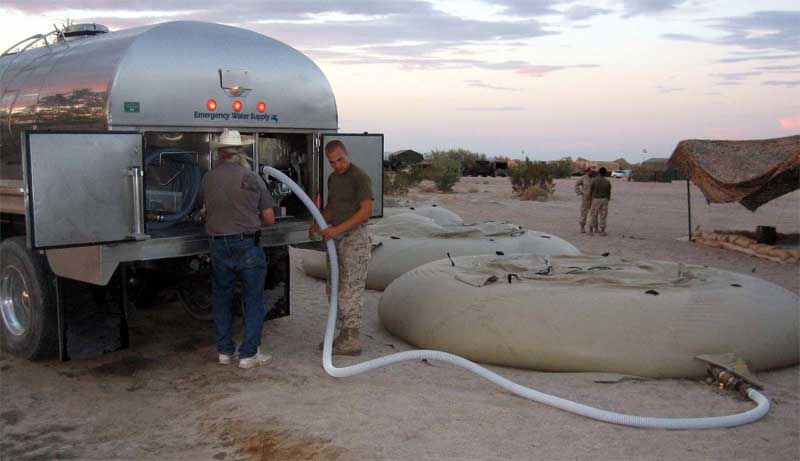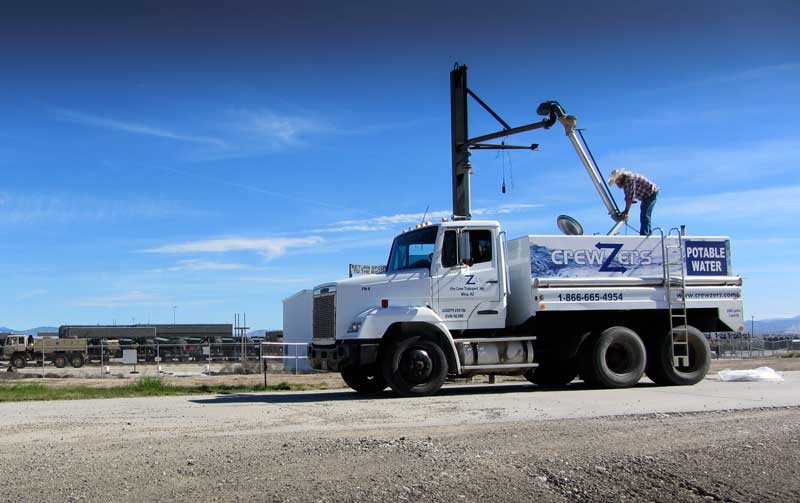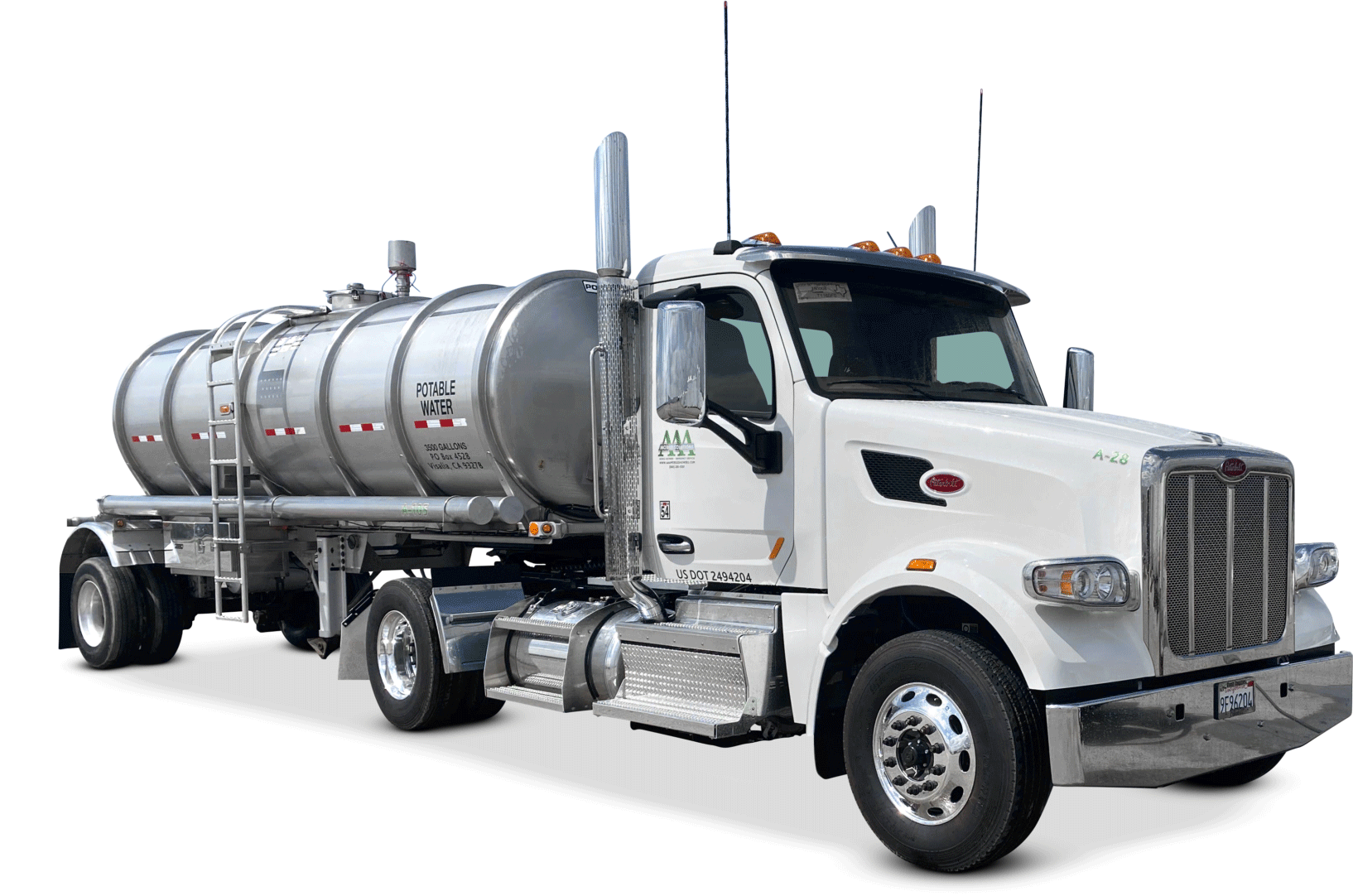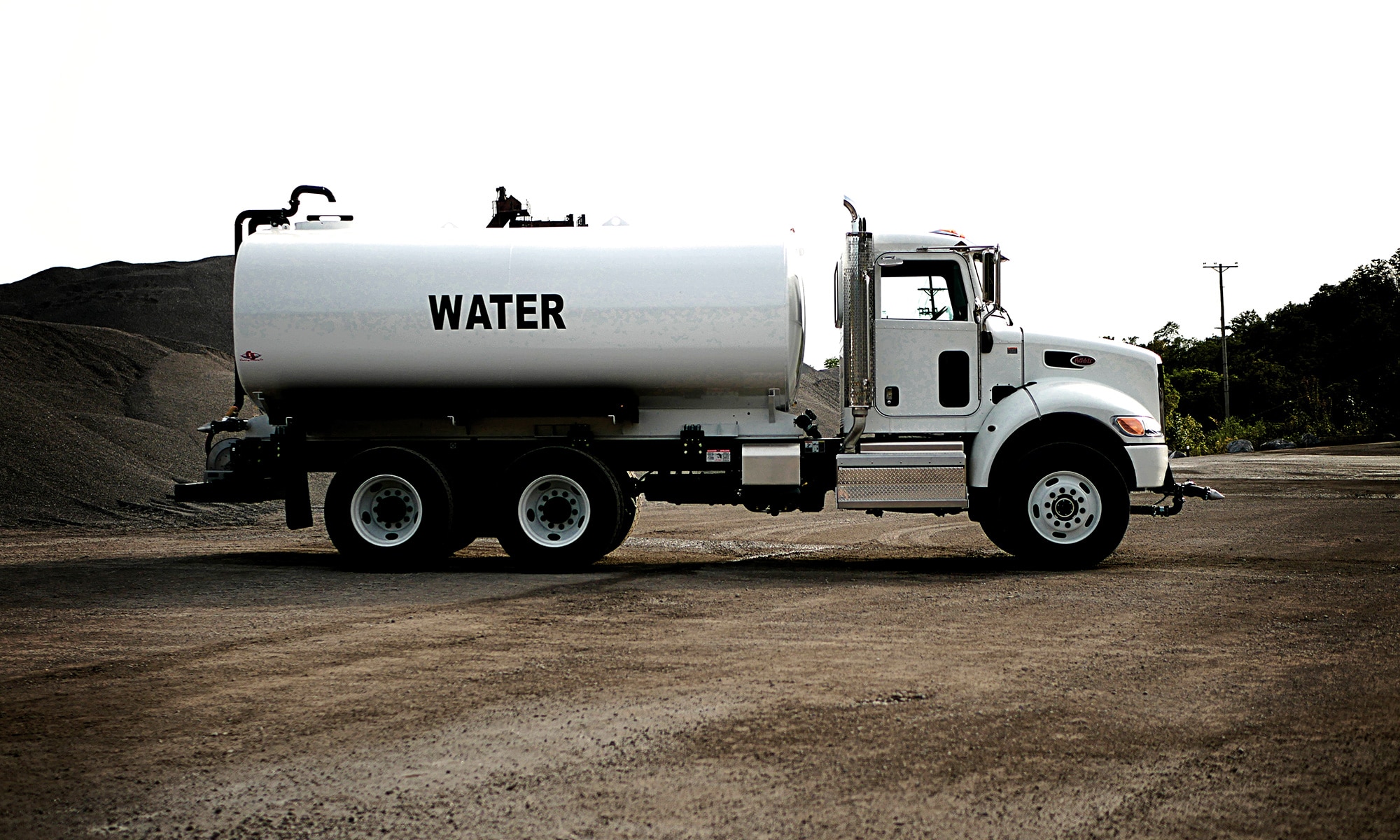Potable Water Trucks For Sale: Your Comprehensive Guide to Acquiring and Operating Essential Water Delivery Vehicles pickup.truckstrend.com
Introduction: The Lifeline on Wheels
In a world where access to clean, safe drinking water is paramount, potable water trucks stand as unsung heroes, bridging critical gaps in infrastructure and emergency response. These specialized vehicles are designed and equipped to transport water fit for human consumption, ensuring communities, businesses, and individuals have reliable access to this fundamental necessity, especially in areas lacking direct pipeline connections or facing water supply disruptions.
Potable Water Trucks For Sale: Your Comprehensive Guide to Acquiring and Operating Essential Water Delivery Vehicles
From delivering vital hydration during natural disasters and supplying remote construction sites, to providing temporary water for large public events and supporting agricultural needs, potable water trucks are indispensable assets. Their importance has only grown with increasing urbanization, climate variability, and the demand for flexible water solutions. For businesses looking to enter or expand into water delivery, emergency services, or industrial support, understanding the market for potable water trucks for sale is the first crucial step. This comprehensive guide will delve into every aspect of these essential vehicles, helping you make informed decisions.
Understanding Potable Water Trucks: Components and Compliance
A potable water truck is more than just a tank on wheels; it’s a meticulously designed system built to maintain water quality from source to delivery point. At its core, it comprises:
- Chassis: A robust commercial truck chassis (e.g., Ford, Freightliner, Kenworth, Peterbilt, Volvo) provides the power, stability, and carrying capacity. The choice of chassis dictates the truck’s maneuverability, fuel efficiency, and overall durability.
- Water Tank: This is the heart of the system. Potable water tanks are typically constructed from food-grade materials such as stainless steel, specialized food-grade polyethylene, or sometimes aluminum. These materials are chosen for their non-corrosive properties, resistance to bacterial growth, and inertness, ensuring they do not leach harmful substances into the water. Tank capacities vary widely, from small 500-gallon units to massive 10,000+ gallon tankers.
- Pump System: A high-quality pump is essential for efficient loading and unloading of water. Pumps are typically driven by the truck’s power take-off (PTO) or an auxiliary engine. They must be capable of handling the required flow rates and pressures.
- Hoses and Fittings: All hoses, valves, and fittings must also be made from food-grade materials and designed to prevent contamination. Quick-connect fittings and hose reels enhance operational efficiency.
- Dispensing Mechanisms: Depending on the application, trucks may feature gravity-feed outlets, pressurized spray nozzles (for dust suppression on construction sites, often with a separate, non-potable system), or multiple hose connections for filling various containers.

Regulatory Compliance: A critical distinction for potable water trucks is their adherence to stringent health and safety regulations. In the United States, this includes compliance with FDA (Food and Drug Administration) standards for materials in contact with food and beverages, and NSF International (National Sanitation Foundation) certifications for water contact materials. Local and state health departments also impose specific requirements for water sources, testing, transport, and delivery protocols to ensure public health. Any truck designated for potable water must meet these rigorous standards to be legally and safely operated.
Key Applications and Industries for Potable Water Trucks
The versatility of potable water trucks makes them invaluable across a diverse range of sectors:

- Emergency & Disaster Relief: Following natural disasters (floods, earthquakes, hurricanes) or infrastructure failures, municipal water supplies can be compromised or inaccessible. Potable water trucks are frontline responders, delivering safe drinking water to affected populations, temporary shelters, and emergency service providers.
- Construction Sites: Many construction projects, especially in remote or developing areas, lack direct access to municipal water lines. Potable water trucks supply drinking water for workers, as well as water for mixing concrete (where water quality is critical) and dust control (though often a separate system).
- Remote Communities & Rural Areas: In regions without centralized water systems, trucks provide a regular supply of potable water to homes, businesses, and livestock, acting as a mobile utility service.
- Events & Festivals: Large outdoor gatherings, concerts, and festivals require substantial temporary water supplies for hydration stations, catering, and sanitation facilities. Potable water trucks ensure a continuous, safe supply.
- Agriculture: While often associated with irrigation, potable water trucks are vital for livestock watering, particularly in drought-prone areas or for animals requiring high-quality water.
- Municipalities: City and county public works departments utilize these trucks during water main breaks, system maintenance, or to provide temporary water to areas experiencing service interruptions.
- Oil & Gas Operations: Remote drilling and exploration sites often rely on trucked-in potable water for their workforce.

Types and Configurations: Tailoring to Your Needs
Potable water trucks come in various sizes and configurations, designed to meet specific operational demands:
- By Capacity:
- Small (500-1,500 gallons): Ideal for smaller operations, tight urban spaces, or short-distance deliveries. Often built on lighter-duty commercial chassis.
- Medium (2,000-4,000 gallons): A common choice for general contracting, event support, and regional deliveries, offering a good balance of capacity and maneuverability.
- Large (5,000+ gallons): Suited for long-haul transport, large-scale industrial projects, or widespread disaster relief efforts, maximizing efficiency per trip.
- By Tank Material:
- Stainless Steel: The premium choice, offering superior durability, hygiene, and longevity. Easy to clean and highly resistant to corrosion. Higher initial cost.
- Food-Grade Polyethylene: Lighter, more affordable, and corrosion-resistant. Flexible, making it less prone to cracking. However, can be susceptible to UV degradation over long periods if not properly protected.
- Aluminum: Lighter than steel, but less common for dedicated potable water due to potential reactivity with certain water chemistries, though specialized liners can mitigate this.
- By Chassis Type: From conventional cab-and-chassis trucks to semi-trailer tanker configurations, the choice depends on desired capacity, road legal weight limits, and terrain. Some units are also available as skid-mounted systems that can be placed on a flatbed trailer or a dedicated truck.
Important Considerations When Buying a Potable Water Truck
Purchasing a potable water truck is a significant investment. Careful consideration of these factors will ensure you acquire the right vehicle for your needs:
- Capacity Requirements: Accurately assess your typical and maximum water delivery needs. Over-specifying capacity can lead to unnecessary costs, while under-specifying can limit operational efficiency.
- Chassis Condition (Especially for Used Trucks): Thoroughly inspect the engine, transmission, brakes, tires, suspension, and frame. Check for rust, leaks, and any signs of excessive wear. Review maintenance records meticulously.
- Tank Integrity and Material: Verify the tank’s material is indeed food-grade and has the necessary certifications (e.g., NSF/FDA compliant). Inspect for cracks, dents, corrosion, or any signs of internal degradation. A clean, well-maintained interior is crucial.
- Pump and Hose System: Test the pump for proper operation, flow rate, and pressure. Ensure all hoses, valves, and fittings are in good condition, free from leaks, and made of potable-grade materials.
- Regulatory Compliance and Certification: Confirm the truck and its components meet all relevant national, state, and local health department regulations for potable water transport. Ask for documentation of certifications.
- Maintenance History: For used trucks, a complete and verifiable maintenance history is invaluable. It indicates how well the vehicle has been cared for and can reveal potential recurring issues.
- Budget and Financing: Determine your budget range, considering not just the purchase price but also potential financing costs, insurance, registration, and initial maintenance.
- New vs. Used:
- New Trucks: Offer warranties, the latest technology, full customization options, and no immediate wear-and-tear concerns. However, they come with a higher upfront cost and immediate depreciation.
- Used Trucks: Provide a lower entry price point and can be available immediately. However, they carry higher risks of unknown mechanical issues, wear and tear, and potentially outdated technology. A professional pre-purchase inspection is highly recommended for any used vehicle.
- Resale Value: Consider the truck’s make, model, age, and condition, as these factors will influence its future resale value. Reputable brands often hold their value better.
Operating and Maintaining Your Potable Water Truck
Once acquired, proper operation and meticulous maintenance are key to ensuring the longevity, efficiency, and safety of your potable water truck.
- Filling Procedures: Always source water from approved, certified potable water sources. Implement strict backflow prevention measures to avoid contaminating the source or the truck’s tank.
- Delivery Protocols: Follow hygienic procedures during delivery, ensuring hoses and dispensing points are kept clean and free from contamination. Avoid cross-contamination with non-potable water systems.
- Cleaning and Sanitization: Regular cleaning and sanitization of the tank, hoses, and pump system are paramount. This typically involves flushing with potable water, followed by a chlorine solution, and then thorough rinsing. The frequency depends on usage, but often occurs daily, weekly, or after each major delivery. Regular water quality testing of the delivered product is also essential.
- Preventative Maintenance: Adhere to a strict preventative maintenance schedule for the truck’s chassis (engine oil changes, tire rotations, brake inspections, fluid checks) as well as the water system components (pump lubrication, hose inspection, filter replacement).
- Record Keeping: Maintain detailed logs of water sources, delivery locations, volumes, and dates. Also, keep comprehensive records of all maintenance, cleaning, and sanitization procedures, including water quality test results. This is crucial for compliance and troubleshooting.
- Addressing Challenges: Be prepared for potential challenges such as contamination risks, evolving regulatory requirements, mechanical breakdowns, and logistical complexities in remote areas. Proactive planning and robust protocols are your best defense.
The Buying Process: A Step-by-Step Guide
- Define Your Needs: Determine capacity, new/used preference, budget, and specific features required for your operations.
- Research and Source: Look for reputable dealers specializing in commercial trucks, heavy equipment, or water delivery vehicles. Explore online marketplaces, auction sites, and direct sales from companies upgrading their fleets.
- Inspect Thoroughly: For used trucks, arrange a comprehensive pre-purchase inspection by an independent, qualified mechanic. For new trucks, inspect for any factory defects.
- Verify Documentation: Confirm clear title, maintenance records, and any certifications (e.g., NSF, FDA, state health department approvals).
- Negotiate Price: Be prepared to negotiate, especially for used vehicles. Consider financing options if needed.
- Secure Insurance: Obtain appropriate commercial vehicle insurance, including liability and cargo coverage.
- Arrange Transport/Pickup: Plan how you will take possession of the truck, especially if it’s located far from your operational base.
Potable Water Trucks For Sale: Estimated Price Guide
Please note that prices can vary significantly based on manufacturer, year, mileage, condition, features, tank material, and regional market demand. This table provides general estimated ranges.
| Category | Condition | Estimated Price Range (USD) | Key Features / Notes |
|---|---|---|---|
| Small Capacity | New | $70,000 – $120,000+ | 500-1,500 Gallons, Food-Grade Polyethylene or Stainless Steel Tank, Basic Pump, Commercial Pick-up/Light-Duty Chassis. |
| (500-1,500 Gal) | Used (Good) | $30,000 – $70,000 | 2-7 years old, well-maintained, lower mileage, often on Ford F-Series or similar chassis. |
| Used (Fair) | $15,000 – $35,000 | 8-15+ years old, higher mileage, may require some repairs or cosmetic work. | |
| Medium Capacity | New | $120,000 – $220,000+ | 2,000-4,000 Gallons, Stainless Steel or Poly Tank, PTO Pump, Hose Reels, Medium-Duty Commercial Chassis (e.g., Freightliner M2, Kenworth T270). |
| (2,000-4,000 Gal) | Used (Good) | $60,000 – $120,000 | 3-8 years old, good condition, regular service history, popular for construction/event support. |
| Used (Fair) | $35,000 – $65,000 | 10-20+ years old, higher hours/mileage, potential for wear on pump or chassis components. | |
| Large Capacity | New | $220,000 – $400,000+ | 5,000-10,000+ Gallons, Stainless Steel Tank, High-Capacity Pump, Multiple Outlets, Heavy-Duty Commercial Chassis (e.g., Peterbilt, Kenworth T880, Volvo). |
| (5,000+ Gal) | Used (Good) | $100,000 – $250,000 | 4-10 years old, well-maintained, suitable for major industrial, municipal, or disaster relief operations. |
| Used (Fair) | $60,000 – $120,000 | 10-20+ years old, higher mileage/hours, may show significant wear, but still operational. |
Note: Prices do not include taxes, registration fees, or delivery costs. Custom features, advanced pump systems, or specialized chassis can significantly increase the price.
Frequently Asked Questions (FAQ) About Potable Water Trucks
Q1: What makes a water truck "potable"?
A1: A potable water truck is specifically designed and certified to transport water safe for human consumption. This means its tank, pump, hoses, and all components that come into contact with the water are made from food-grade materials (e.g., NSF/FDA certified stainless steel or polyethylene), are dedicated solely to potable water use, and are subject to strict cleaning and sanitization protocols to prevent contamination.
Q2: What regulations apply to potable water trucks?
A2: In the U.S., trucks must comply with FDA regulations for materials, NSF International standards for water contact components, and specific local and state health department requirements regarding water sourcing, transport, testing, and delivery. Operators must often obtain permits and maintain detailed records.
Q3: Can I convert a regular water truck (e.g., for dust control) into a potable water truck?
A3: Generally, it is not recommended or easily achievable to convert a non-potable water truck. The internal surfaces of tanks used for non-potable water (which may contain residues from various water sources or chemicals) cannot be guaranteed clean enough for potable use. A true potable water truck requires dedicated food-grade components throughout the entire system from its initial build.
Q4: How often should the potable water tank be cleaned and sanitized?
A4: The frequency depends on usage, water source quality, and local regulations. Best practice often dictates cleaning and sanitizing the tank, hoses, and pump system daily or after each major delivery. At a minimum, a thorough cleaning and sanitization should occur weekly or monthly, with regular water quality testing.
Q5: What is the typical lifespan of a potable water truck?
A5: With proper maintenance, the truck chassis can last 10-20 years or more, depending on mileage and operating conditions. The stainless steel or high-quality polyethylene tank itself can last 15-30+ years, often outliving multiple chassis.
Q6: Do I need a special license to operate a potable water truck?
A6: The license requirement depends on the Gross Vehicle Weight Rating (GVWR) of the truck. Most medium to large potable water trucks (over 26,000 lbs GVWR) will require a Commercial Driver’s License (CDL) in the U.S. Specific endorsements (like tanker endorsement) may also be required depending on state regulations.
Q7: Where can I find potable water trucks for sale?
A7: You can find them at specialized commercial truck dealerships, heavy equipment auction sites, online marketplaces (like TruckPaper.com, CommercialTruckTrader.com, My Little Salesman), and sometimes directly from municipalities or companies upgrading their fleets.
Conclusion: Investing in Essential Service
Acquiring a potable water truck is an investment in a vital service that underpins public health, supports critical industries, and provides essential relief in times of crisis. Whether you’re a burgeoning water delivery business, an established construction firm, or a municipality bolstering its emergency response capabilities, selecting the right vehicle is paramount.
By understanding the diverse types, crucial considerations for purchase, and the stringent demands of operation and maintenance, you can ensure your potable water truck remains a reliable, compliant, and highly effective asset. In a world where clean water access is increasingly recognized as a human right, these specialized trucks are more than just vehicles – they are lifelines on wheels, delivering the most precious resource directly to where it’s needed most.



